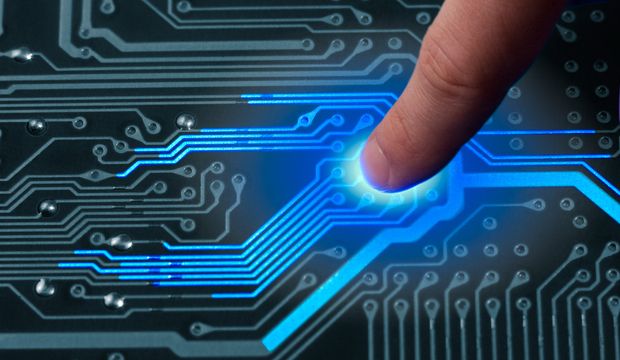
Whether you read tech journals or the mainstream news, the dominant story today is the rise of data. Big Data, analytics, automation, robotics—each of these topics represents a different way to talk about the most significant trend of our times: We are in an information age and our world is quickly becoming defined digitally. This isn’t just an end of paper records…it is the beginning of the storage of information about nearly every aspect of our physical world. Defining our world in digital format changes everything; suddenly, information science is the same as physical science. A chemist uses a computer more than chemicals. A mechanical engineer may never touch paper.
The simple fact is that everything is becoming a branch of computer science.
Evolving Human-Machine Interfaces
And it isn’t that computer science is growing up. Instead, the way work is done is growing down to meet data, systems, and computational thinking. At the shifting interface of human beings and automation technology is an enormous amount of change pushed by IT departments (with many businesses saying “not fast enough”) and increasingly pulled by savvy users finding their own tools and techniques for work automation.
The work we do today isn’t just supported by computers as a form of automation (like sending email rather than memos and letters). Machines are the new way even traditional work is being accomplished. In marketing, for example, what was once about creative taglines and elegant prose is now a data-driven, automation-enabled, and very much a human-machine system. Where people once ordered retail stock based on hunch, they now routinely use predictive analytics that rely on new, discreet sources of data. And this isn’t simply an automated task—the buyer must know what the variables are and what data to trust and when.
And as quickly as we figure out a better way, an even better way comes along.
Rise of Computer Science
It’s no surprise, then, that in the article “Why Are English Majors Studying Computer Science?,” UC Berkeley computer science professor David Patterson says that the tide has turned with computer science now being among the most popular courses on campus. Of course it has. With so many traditional forms of work being digitized, there’s a powerful realization that job security today, and going forward, relies on understanding changing operating systems, changing platforms, changing devices, and changing ways of thinking about data.
This is the popularity of Coursera, code. org, Codeacademy.com, and others. The public is catching on to the fact that we need to retool for the new workplace. They’re realizing that everything is becoming dependent on a decent understanding of computer science (the more the better).
The effect on the enterprise is profound. Supporting a business in a world where everything is based around computer science is very different from managing transactional data. Companies that want to get ahead of this change need to take a good look at the way the enterprise is supported, and consider new strategies for integration and data management.
Those strategies need to cross traditional boundaries. Read why Gartner has positioned TIBCO as a leader in Master Data Management (MDM) for both Product and Customer information.





